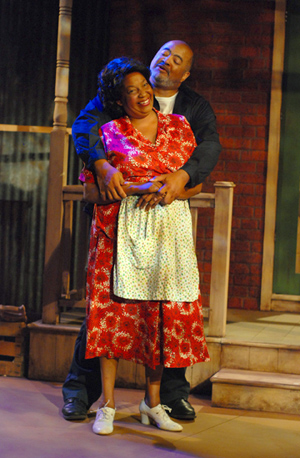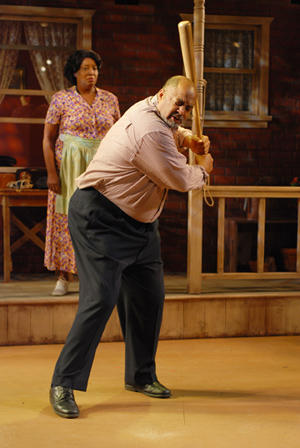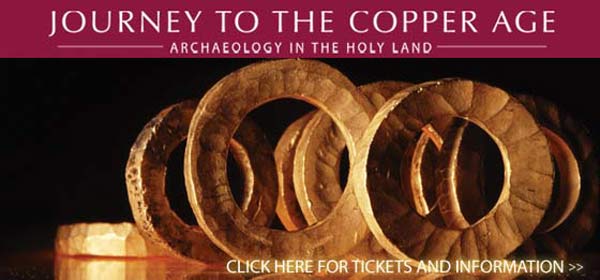| |
|



WAR AND LORE
Gazans break out to Egypt may prove
to be Israel's blessing in disguise
By Isaac Yetiv, Ph.D.
 LA JOLLA, California—Our Hebrew Sages , HZ"L (Hakhameinu zikhronam livrakha)said that "there is no man who doesn't have his hour." They meant that any person has at least one opportunity in his life that he shouldn't miss. LA JOLLA, California—Our Hebrew Sages , HZ"L (Hakhameinu zikhronam livrakha)said that "there is no man who doesn't have his hour." They meant that any person has at least one opportunity in his life that he shouldn't miss.
History has shown us that this applies to nations, too. The century-old Middle-East drama of "missed
opportunities" has recently presented Israel with a momentous opportunity which its failed leadership did not seem to comprehend and to seize. I am referring to the conquest of Gaza by Hamas, and its corollary, their forceful push into Egypt.
The pariah mini-state of Hamastan in Gaza and its irreconcilable enmity with its weakling brother
Fatah in the West Bank , whose survival depends on the Israeli military, is a godsend to Israel. It has put an end to the dangerous prospect of joining the two pieces with "an 8-lane highway controlled by the Palestinians," as Arafat once demanded, which would have cut Israel in two. It has postponed sine die the advent of a Palestinian state, not viable with its two parts and even less viable , a basket case, in the West Bank alone.
The push into Egypt is also a blessing for Israel.
Having left Gaza after uprooting its 9,000 Jewish inhabitants, it is ridiculously pathetic to continue
to supply them with food, fuel, and even medicine.
The destruction by Hamas of the steel barriers and their penetration en masse into the Egyptian Sinai in a buying binge that emptied the stores--where did they get the money, one may wonder, to pay those exorbitant prices?-- was a deliberate movement by Hamas to show that they wanted to continue shelling the Israeli towns without facing a retaliation , not only military which they know will continue, but a cut in the vital supplies. Hence their new "orientation" toward their Arab brothers.
Israel should stay put, not interfere in the intra-Arab problems, just respond militarily , not re-
conquer Gaza "and give it to Abbas," as it was whispered in the high circles--what a horror! Israel
has no obligations, legal or moral, to continue to supply food and fuel to its enemy as a quid-pro-quo
for rockets. It should push and facilitate the new orientation. Let them get what they need through
El-Arish!
Hopefully ,we will slowly advance toward a status quo ante of the 1967 situation when Gaza was ruled by Egypt (Begin's worst mistake was to allow Sadat not to take Gaza as part of the peace agreement), and, as a consequence, the West Bank reverting in any way they choose to Jordan rule. As I wrote elsewhere, I see this prospect as the only way to achieve peace.
Please, Mr Olmert, do not repeat your declaration that we want to make a deal with both WestBank and Gaza as "a package," and count your blessings. Please, Miss Rice , stay home, you have done enough damage already with your undue interference.

 THE JEWISH CITIZEN THE JEWISH CITIZEN
Commuter conversations—San Diego style
By Donald H. Harrison
 SAN DIEGO—When I used to commute by train from New York City to our apartment in Hartsdale, N.Y., I had a choice to engage or not to engage in conversation with fellow train passengers. If I chose not to engage, I could read the daily newspaper, or a book. The fact that so much potential reading time was built into my day as a commuter made me realize why New Yorkers seem to have a keener appreciation of current events and new books than San Diegans do. San Diegans get their news in sound bites from the car radio during commute times; New Yorkers can use their trip to and from the office to follow the reporting of The New York Times. SAN DIEGO—When I used to commute by train from New York City to our apartment in Hartsdale, N.Y., I had a choice to engage or not to engage in conversation with fellow train passengers. If I chose not to engage, I could read the daily newspaper, or a book. The fact that so much potential reading time was built into my day as a commuter made me realize why New Yorkers seem to have a keener appreciation of current events and new books than San Diegans do. San Diegans get their news in sound bites from the car radio during commute times; New Yorkers can use their trip to and from the office to follow the reporting of The New York Times.
Sometimes New Yorkers get so caught up in following the continuing news from Latin America, the Middle East, Asia, Africa, or Australia, that they get annoyed if anyone interrupts their daily news absorption. But occasionally, perhaps when their eyes are just too tired to keep reading but they don’t want to sleep, they may welcome a conversation with another passenger—assuming that passenger is someone they recognize as being a regular fellow commuter.
In San Diego, having a conversation with a fellow commuter requires more imagination. They are in another moving car, after all, and you can’t just roll down your window and start gabbing. But if you are willing to forego spoken language, you can have interesting “conversations.” And, no, I’m not talking about using rude hand signs to communicate with the so-and-so who cut you off in traffic.
I’m talking about reading the bumper stickers, license plate frames, and appliqués on the back of the car in front of you whenever you come to a traffic light, or are stuck on a clogged freeway. Through these signs, your fellow motorists often tell you a lot about themselves—giving you something to ponder. For example, David Strom, an emeritus professor of education who reviews books for San Diego Jewish World, has a faded bumper sticker which exhorts: “More trees, less Bush” It’s almost like saying to the driver of the car behind him: “Hi, I’d like you to know that I’m not a Republican, and frankly I’m not very enamored with our President. Furthermore, I’m something of an environmentalist. Global warming concerns me. And, by the way, I like a well-chosen pun every once in a while.”
Now that’s almost a whole conversation.
Yesterday, I was behind a young woman who had a lot to say. There was a Christian fish appliqué on the back of her car. Her personalized license plate said “JSES ROX” and the frame of her license announced “My boss is a Jewish carpenter.” Rosary beads hanging from her rear view mirror completed the auto-portrait of a devout Catholic woman.
I found myself free associating about each of the messages on the back of the car. I noted that her Christian fish swam alone; it wasn’t in a battle with a fish with the name ‘Darwin” inside it—as you sometimes see. Nor did the fish have the name “Gefilte” within it. So, I concluded that it represented a straightforward profession of her faith, with no jokes.
JSES ROX suggested to me that the woman driving the car probably was fairly young, as “he rocks” seems to be an expression that became popular well into my middle years. I knew that the bumper sticker, “my boss is a Jewish carpenter” refers to Jesus’ religion and profession, but I couldn’t help but wonder if we Jews do carpentry somehow differently than anyone else. Do we slice off a small piece from the end of the board? I also found myself remembering something a guide once told me in Israel—that in all likelihood Jesus wasn’t a carpenter but instead was a stone mason. Christian Scriptures originally were written in Greek, and the word for builder could have referred to either a carpenter or a stone mason. But the part of the Galilee where Jesus roamed had plenty of stones, and not so many trees.
Therefore, I wondered, should the bumper sticker have read “My boss was a Mason?” And given the historical antagonism between Catholicism and Free Masonry, would a religious Catholic ever put such a sticker on her car? I was still pondering that when the light changed.
Sometimes license plates require more interpretation than is possible while waiting for a light. I have a friend in Florida, whose license plate reads “Am I Am.” Some people think that the license plate refers to the name with which God identified Himself to Moses. As a result some people don’t know quite what to think about my friend’s plate. Is it a reverent scriptural citation or maybe blasphemy?
My friend’s first name is Amnon. His nickname is Am. So “Am I Am” is literally true.
If you like license plates with Jewish words or references, we’ve been building a collection of them on this website—with the help of Melanie Rubin, who spots them almost before anyone else does.
How about you? Have you had any Jewish conversations with the car in front of yours?


 
ARTS IN REVIEW
Cygnet swings for—and reaches—Fences
By Carol Davis
 SAN DIEGO—In one of the many terrific scenes of August Wilson’s Fences currently in an out of the ball park production at Cygnet Theatre, Sylvia M’Laffi Thompson who plays Rose, Troy’s (Antonio “TJ” Johnson) wife, says of her husband, “When he walks through that door, he fills up the house. He sucks the air out of the room.” That about sums up the extraordinary presence of Johnson, an amazing actor who not only embraces the role of Troy Maxson (a combination of the Mason/Dixon line separating north from south) he embodies it. SAN DIEGO—In one of the many terrific scenes of August Wilson’s Fences currently in an out of the ball park production at Cygnet Theatre, Sylvia M’Laffi Thompson who plays Rose, Troy’s (Antonio “TJ” Johnson) wife, says of her husband, “When he walks through that door, he fills up the house. He sucks the air out of the room.” That about sums up the extraordinary presence of Johnson, an amazing actor who not only embraces the role of Troy Maxson (a combination of the Mason/Dixon line separating north from south) he embodies it.
Moxie Theatre’s artistic director Delicia Turner Sonnenberg directs this co-production between Cygnet Theatre and San Diego’s Black Ensemble Theatre with adroitness, precise timing, warmth and deft attention to details.
Fences is the sixth in Wilson’s Pittsburgh, or Century, Cycle, depicting the Black experience. The series is reminiscent of Jewish playwrights who wrote about the Jewish experience in the early 20’s, 30’s and 40’s, through the 60’s. Among these were Aaron Hoffman’s Welcome Stranger, Elmer Rice’s Counsellor at Law, Clifford Odets’ Awake and Sing, Arthur Laurent’s’ Home of the Brave and Israel Horovitz’s A Rosen By Any other Name to name a few.
Fences begins in 1957 well before the prominence of Rev. Martin Luther King Jr.’ or the Civil Rights Movement, sandwiched between the Korean and Vietnam wars and ending in 1965. This was a time in history I remember well, but only on the outside looking in. In 1959 we made our trek across country to San Diego amid school integration crises in the south. Traveling in the south was an eye opener for a northern liberal.
The first time I saw Fences was in 1990 and it starred both M’Lafi and Johnson. I still remember it as if it were yesterday. I was as blown away then as I was recently seeing them both revive their respective parts. This time, however, maturity has made an overwhelming difference. Some actors simply grow into their characters. Some become them. As Troy, Johnson is a bigger-than-life character who not only dominates the stage as the head of his family in this powerful production, but as an actor who knows his subject matter. Thompson digs deeper and it shows that years not only add depth but also true compassion.
Set in Maxson’s backyard, the play opens with Troy and his longtime friend Bono (Grandison M. Phelps III) who is willing to be there, to listen and possibly get a few words in edgewise as they talk over whiskey about their work as garbage collectors, the union and why only white men can drive the trucks while their black counterparts dump the garbage into them. This is a payday ritual.
The conversation wanders from work to their personal lives and even to their private lives. There are no secrets in this little ghetto but there are fences to either keep the family in or changes out. We learn about Troy’s life before Pittsburgh as the son of a slave turned sharecropper and a convicted felon. We learn about his marriage to Rose, the backbone of the Maxson family played with expertise by M’Lafi Thompson. We learn about his first son Lyons (Lawrence Michael Brown), and his brother Gabriel (Mark Christopher Lawrence).
Lawrence was outstanding as he grapples with his world bordering life and impending death as an injured World War II veteran thinking himself the Archangel Gabriel. He was turned out by the Veterans Administration with a $3,000 pittance, which Troy used to build his house.
A former Negro League baseball star, Troy never quite benefited from the likes of Jackie Robinson, (he was too old), with whom he compares himself. So when another son, Cory (Patrick Kelly) is offered a football scholarship, Troy puts the nix on it thinking the same will come of him, wedging a bigger gap between father and son who have a tenuous relationship as it is. It is in this context that almost every reference Troy makes to his life are in baseball terms: the fastball metaphor in a reference to different forms of death, while "three strikes" refers to every decision Cory makes that doesn't agree with Troy.
Wilson’s Fences was the second in his series to win the Pulitzer Prize. In describing changing times, attitudes and the place of Blacks in the future, his writing is lyrical, almost hypnotic and in Johnson’s hands it’s mesmerizing. When we first meet Troy, he appears indestructible, passionate and afraid of nothing. The more the layers of his personality are revealed, the more vulnerable, human and tragic a figure he becomes.
His relationship with his wife and family by the second act begin to crumble. Even his friendship with Lyons deteriorates when he admits he can’t stop seeing a local woman who makes him laugh among the protests by his best friend that he has a wonderful wife in Rose.
However, the relationship between Rose and Troy is so real and believable that you want them to live happily ever after, but that only happens in fairy tales and M’Lafi Thompson knows that. Her portrayal of Rose is nothing short of perfection as she shows us an emotional range from passionate mother, trying to protect her son as he grows to manhood and ready to conquer his own demons, and caring wife.
Her ‘coming of age’ speech if you will upon hearing of Troy’s infidelity, is heartbreaking as she unleashes all her pent up frustrations about her own struggles and wants, suppressed by the desire to be the perfect wife, while she directs her anger at the husband she loves but who betrayed her. And finally, accepting that what was done was done; she accepts what the future has to offer with dignity and love always respecting the memory of the man who was her husband for over eighteen years.
Technical support had a hand in making this production such a well-rounded success. Mike Buckley’s set is so detailed that every time I looked at it I found something new. It had a half finished fence which by play's end was complete. At that point did he want to keep people in or keep them out?
Eric Lotze’s lighting, George Ye’s sound design and Veronica Murphy’s period costumes (she’s a pro at that) helped create just the mood and time frame for such a wonderful play and production.
Fences continues through Feb. 24. This is a must see.
See you at the theatre.


SAN DIEGO JEWISH WORLD THE WEEK IN REVIEW
Judy Lash Balint in Jerusalem: Jerusalem's snow and political flurries
Peter Garas in Canberra, Australia: The labels that other people affix to us
Donald H. Harrison in Imperial Beach, California: Imperial Beach blue: 'John' was canceled
Sheila Orysiek in San Diego: How to order flowers for a bat mitzvah
Ira Sharkansky in Jerusalem: Winograd report providing grinding surface for many different political axes
Francine Ginsburg in La Jolla, California: Storyline, editing, teaching potential are all criteria for whether a film is chosen
Donald H. Harrison in National City, California: When civic and religious duties clash
Marissa Palin in La Jolla, California: Global warmth: is Bible really to blame?
Reut Schwartz-Hebron in San Diego: Economics account for some Hindu and Jewish ritual; Zen offers a way to adapt
Shoshana Bryen in Washington D.C.: Gaza chaos likely to metastasize, posing new dangers to Israel, U.S. forces, Egypt (A report by Lenny Ben-David)
Cynthia Citron in Los Angeles: Last Days of Judas Iscariot lasts and lasts
Carol Davis in San Diego: Ion scores with The Pillowman
Peter Garas in Canberra, Australia: Tired of telephone solicitors? Try handling them with some old fashioned chutzpah
Donald H. Harrison in La Jolla, California: Ethiopian Jew's show a comical eye-opener
J. Zel Lurie in Delray Beach, Florida: Should Allies have bombed Auschwitz?
Shoshana Bryen in Washington, DC: Should Gaza be made a U.N. protectorate?
Peter Garas in Canberra, Australia: Palestinians should consider emigrating to lands where there are real opportunities
Norman Greene in San Diego: England is the most anti-Semitic country in Europe, Dershowitz tells news media
Donald H. Harrison in San Diego: JFS programs, including youth-run food pantry, flourish at Turk Family Center
Rabbi Baruch Lederman in San Diego: When questions of halacha are posed to embarrass rather than to learn
Rabbi Leonard Rosenthal in San Diego: Taking our mother's Hebrew name too
< BACK TO TOP
|
|

